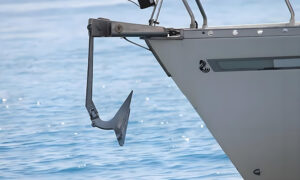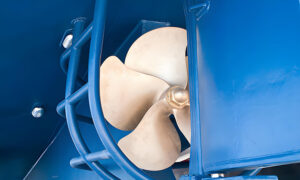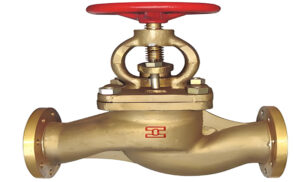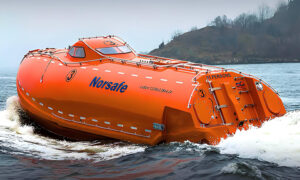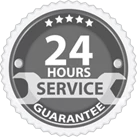Marine rope is regarded as an essential tool in maritime applications. As time goes by, it may accumulate dirt and need maintenance. So, proper upkeep can prolong lifespan and promote the practicability of marine ropes in marine activities.
Types of Contaminants Found on Ship Ropes
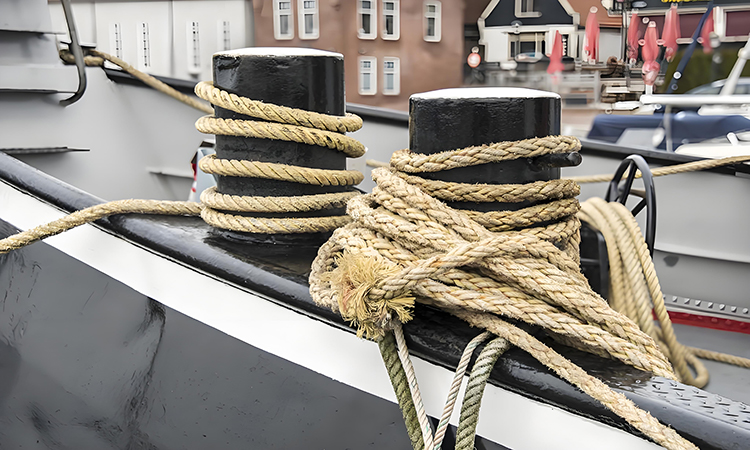
Some common dirt of marine ropes include the residual salt, dirt, and some materials attached to the surfaces of ship ropes such as mud, oil and grease leaks, algae, and marine growth, common dirt, rust, and corrosion of metal materials as well as the weathering effects exposed on the sunlight, wind, and saltwater.
Maintaining Marine Rope Strength: Cleaning Essentials
Cleaning marine ropes is a careful process. Because it needs to pay attention to some details to maintain its strength and integrity. When cleaning a rope for boat, it is essential to use some mild detergent like Woolite or diluted modern washing powder. These detergents are mild enough for new ropes. Because they can clean them rather than eliminate the protective layer and lubricants of the new ropes. These coats are useful for preventing UV radiation, abrasion, and absorption.
When washing marine ropes, it is recommended to use the gentlest cycle on a front-loading washing machine. Prior to washing, coil or tie the rope in a daisy-chain and place it inside a pillowcase to prevent tangling and potential damage to both the rope and the washing machine. Front-loading machines are preferred as they provide an up-and-down motion that is less likely to cause damage compared to the rotary motion of other machines.
It is essential for synthetic ropes to avoid contact with harsh chemicals such as acids, bases, and solvents, as they can weaken the ropes. Nylon ropes and polyester ropes are particularly vulnerable to certain chemicals, with nylon being sensitive to acids that can cause rapid deterioration. Fabric softener can be used at recommended doses, but excessive use should be avoided as it can weaken the ropes.
Power washing should be approached with caution, as high-pressure water can cut through ropes and cause hidden damage if not used carefully. Bleach is not recommended for cleaning boating ropes, as it can lead to rope and splice failure. Instead, ropes should be air-dried by flaking them loosely on the floor, avoiding heat which can cause shrinkage and structural damage to the rope.
Professional riggers advise against using washing machines for nylon double-braid ropes, as they are prone to herniation and destruction during the washing process. Additionally, they emphasize the detrimental effects of bleach on ropes, highlighting the risks of stitch and whipping damage that can lead to splice failure.
By following these specific cleaning guidelines, you can ensure that your ropes for boat remain in optimal condition, maintaining their strength and reliability for your marine activities.
Step-by-Step Instructions for Cleaning Marine Ropes
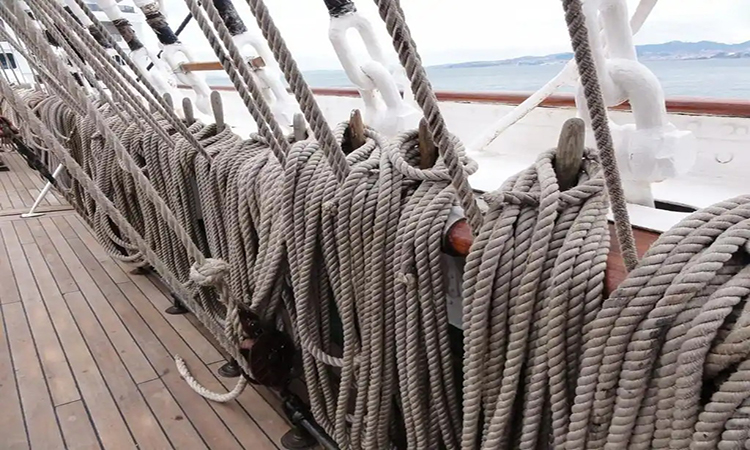
In the industrial environments, cleaning the large vessels’ ropes, especially those can’t be washing by hands, needs to adopt the systematic approaches for guaranteeing the thorough maintenance and keeping.
Usually, the cleaning process starts with some proper preparations including the perfect security measures and cleaning equipment checks. Then put the rope into the cleaning liquid. In this process, a mechanical agitator may be needed to help loosen single stubborn pieces.
Next, industrial-grade high-pressure washers are used to thoroughly clean the ropes, applying marine-grade detergents to effectively remove dirt, grime, and salt residue. Mechanical scrubbing machines may be employed to clean hard-to-reach areas, ensuring that all sections of the ropes are adequately scrubbed to remove embedded dirt.
After cleaning, the ropes are rinsed thoroughly using high-pressure water hoses to eliminate all traces of cleaning agents. Quality checks are performed to confirm the removal of all cleaning agents and to inspect the ropes for any signs of wear, damage, or weaknesses that may require repair.
After the cleaning, ropes will be transported to the industrial drying areas to acquire draught. These areas are ventilated nicely, and there are industrial fans or dehumidifiers to accelerate the process of drying and avoid the growth of mold. After doing that, the ship ropes are placed in the designated areas which are clean, dry, and non-pollution. Otherwise, operators will establish a management system of the inventory to track the maintenance plans. These data are prepared for future reference.
Essential Tools Required for Preparing to Clean Marine Ropes

Preparing a set of essential tools and facilities is the precise of marine ropes cleaning. So first, make sure that you have proper equipment such as gloves, safety goggles, and protective clothes such as an apron.
Next, gather the necessary cleaning solutions, such as marine-grade detergents, mild soaps, or specific cleaners suitable for the rope material. Additionally, make sure you have the right cleaning equipment on hand, such as a high-pressure washer, industrial brushes, scrubbing pads or brushes, and a mechanical agitator for soaking tanks.
For rinsing the ropes effectively, prepare high-pressure water hoses and access to a water source. When it comes to drying the ropes post-cleaning, have industrial fans, dehumidifiers if needed, and suitable drying racks or hanging lines available.
By the way, don’t forget to carry the inspection tools such as a flashlight and magnifying glass. These items are used for checking the conditions of boating ropes carefully. Additionally, we need to set up a designated non-pollution storage place and be ready to implement the inventory management system to track and keep the plans.

